K. X. Song is a diaspora writer with roots in Hong Kong and Shanghai. An Echo in the City is her debut novel. Visit her on Instagram @ksongwrites.
I had the opportunity to interview K. X., which you can read below.
First of all, welcome to Geeks OUT! Could you tell us a little about yourselves?
Thanks for having me! My name is K. X. Song and I’m a diaspora writer with roots in Hong Kong and Shanghai, currently based in the San Francisco Bay Area.
What can you tell us about your debut book, An Echo in the City?
AN ECHO IN THE CITY is a dual point of view novel set in Hong Kong, following Phoenix, an aspiring photographer and student protester, and Kai, a police officer in training and artist from Shanghai. The two meet when Kai is assigned to spy on Phoenix due to her involvement in the protest movement, but of course, nothing goes as planned.
What was the inspiration for the project?
AN ECHO IN THE CITY was very much inspired by its setting, Hong Kong. Hong Kong in the summer of 2019 was simply an electric place. Through story, I wanted to somehow capture that dynamic energy, and the vibrant, beating pulse of the city. People often say change is hard, or even impossible, but that summer, it felt like change was not only possible, but already in motion all around us. It felt like we could do anything, everything. Of course, much has changed since then, but for those who were there, I wanted us to remember, and for those who were not there, I wanted to write a bridge, a way for readers to experience a bit of what it was like.
Based on the book’s description, this story seems to center diaspora identity and culture. I was wondering if you could expand on that theme here, and what it might mean to you as a diaspora author yourself writing it?
As a first-generation immigrant myself and someone who grew up moving between cultures and countries, I often felt a sense of guilt and isolation in struggling where to place myself. For example, in the east, I felt weird calling myself Chinese. In the west, I felt awkward calling myself American. Even calling myself Chinese American felt dishonest at times, given I didn’t relate to Chinese Americans who had never grown up outside America. The thing that was hardest for me was choosing where to call “home”. Home meant many places for me, which, in other words, meant no place. And that led to a pervasive feeling of otherness.
Since then, I’ve met many diaspora kids who experience a similar feeling of being stuck in liminal spaces. I hope readers, both diaspora and otherwise, who relate to these experiences of alienation, can read AN ECHO IN THE CITY and resonate with Phoenix and Kai’s struggles, whether it be through the question of where one belongs, or of who one belongs with, or even of belonging itself–and how one can endeavor to make sense of their place and purpose in an ever-changing world.
As a writer, what drew you to the art of storytelling, specifically young adult fiction and romance?
I don’t remember the exact moment I became interested in telling stories, but what I remember as a child is writing stories on the backs of paper towels and napkins, in restaurants or trains or even at school. As a kid I spent many aimless hours in Shanghai, with my grandparents, where the only English language books available to me were long classics like War and Peace—not exactly appealing to a child! So I started writing my own stories to amuse myself. Young adult romance was particularly interesting to me because often, you’re telling stories about first love in YA romance. All your emotions are heightened; everything is big, intense, powerful. Growing up as a kid, I loved coming of age stories, and as an adult today, I love them still, and find them equally relevant.
How would you describe your creative process?
During the novel ideation process, I’m a pantser. The first spark for AN ECHO IN THE CITY came to me as a setting, but from there, I continued to ask myself freeform questions. Which perspectives do I want to showcase here? What different kinds of stories can I tell? These questions spark images, scents, slivers of scenes. A girl in the rain, waiting for a boy who shouldn’t come. A boy looking at a painting on a billboard, feeling seen and yet invisible. These emotions and images guided me as I then took a more structured approach to outlining. Of course, my outline doesn’t remain the same as I write. The original outline for the story would’ve made the book over 150,000 words. I had to shorten and rearrange the order of several scenes. Certain beats I had planned didn’t make sense in lieu of a character’s changing personality. So I would say my creative process is a combination of pantsing and plotting, with pantsing at the beginning and end, and plotting in the middle.
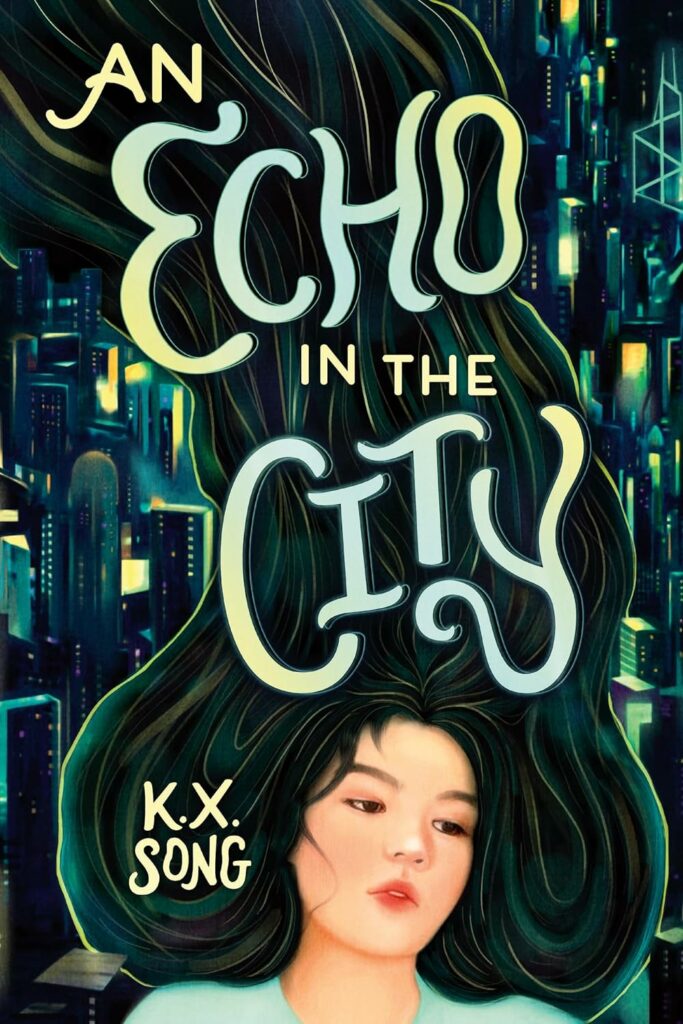
What are some of your favorite elements of writing? What do you consider some of the most frustrating and/or challenging?
I love coming up with the idea for a story, I love writing dialogue, and I love tension. Building tension is so important to keeping your readers engaged. You can do this by asking questions, then leaving them unanswered (until later in the plot). In books that are dual point of view, like AN ECHO IN THE CITY, you can have one character keep a secret that you know the other character would react negatively to, if they found out about that secret. In this way, the reader knows something that one of the narrators does not, and that anticipation adds to the overall tension of the plot.
What I found most challenging was writing a fictional story based on a historical event. In my first draft of ECHO, nearly all the events took place according to a historically accurate timeline. However, this made for a slow-paced and often tedious draft. My editors at Little, Brown were instrumental in helping me tighten the timeline and become more liberal about reconfiguring the order of events to refine the plot and pacing. Writing historical fiction, I learned you often must make a choice between story and fact-telling. As a novelist, I intentionally chose the former, while trying not to sacrifice the core of the historical time and place.
Growing up, were there any stories or books in which you felt touched by/ or reflected in? Are there any like that now?
As a child, I loved the Studio Ghibli movie SPIRITED AWAY, and the novel CORALINE by Neil Gaiman. Both pieces examine the idea of being able to traverse between worlds, and the consequences of such an ability.
As an adult, I love PACHINKO by Min Jin Lee, for its examination of intergenerational trauma, as well as the film IN THE MOOD FOR LOVE, which deeply touched me and reminded me why I create stories.
Aside from your work, what are some things you would want others to know about you?
I’m a huge fan of Rainie Yang, BTS, and Younha. I’m also a huge foodie–I could go on and on about all the foods I love. One of my favorite foods of all time is zongzi–sticky glutinous rice wrapped in bamboo leaves. I eat it with sugar sprinkled on top, which is the perfect blend of sweet and savory. Chinese people eat zongzi year-round, but particularly during the Dragon Boat Festival, in honor of a famous poet named Qu Yuan with an “interesting” back story. According to legend, Qu Yuan drowned himself in a river after the king ignored his wise counsel. The Chinese people, grateful for Qu Yuan’s loyalty to the country, threw zongzi into the river to feed the fish, so that the fish would not eat his body.
What’s a question you haven’t been asked yet but that you wish you were asked (as well as the answer to that question)?
I wish more people asked who the illustrator of the gorgeous cover is! The cover of An Echo in the City is illustrated by Hsiao Ron Cheng, an incredibly talented Taiwanese artist who coincidentally also illustrated the album cover for Troye Sivan’s Blue Neighborhood (an album I adore and listened to while writing this book!)
What advice would you give to other aspiring writers?
I always start with questions. Ask yourself why things are the way they are. Look at your city or hometown through the eyes of a tourist. What is novel, unusual, strange? Contrast your hometown to other places. How are the people here different? What sets them apart? How do you know when you’re home again? What does coming home feel like? These questions can help you start to see your hometown–which can often feel mundane or ordinary–in a new and engaging light. Follow those questions like a trail of breadcrumbs, leading you to a seed of a story. That seed can come in the form of a character, for example, someone new to town. Or it can come in the form of an event, like the Hong Kong protests. What’s important to remember about documentation is that it’s impossible to be fully comprehensive. You can try, if that’s the aim of your novel, but don’t let the need for comprehensive documentation overwhelm the plot or heart of the story.
Are there any other projects you are working on and at liberty to speak about?
Yes! My next project is a big departure from AN ECHO IN THE CITY. Coming out next summer, THE NIGHT ENDS WITH FIRE is a Chinese fantasy inspired by the ballad of Mulan and the Chinese classic Romance of the Three Kingdoms, set in a thrilling world of magic and danger, strange beasts and otherworldly realms. I’m currently in the middle of revisions and can’t wait to share this book with the world. (You can add the book on Goodreads here!)
Finally, what book/authors would you recommend to the readers of Geeks OUT?
So many good books to recommend, but I’ll settle for three. THE IMPOSSIBLE CITY by Karen Cheung, which is an adult memoir about life in Hong Kong, amongst other things. A painfully honest read, beautifully written and truly thought-provoking. WHEN WE WERE INFINITE by Kelly Loy Gilbert, for its flawed yet loving mother-daughter relationship, which made me bawl my eyes out. And THIS PLACE IS STILL BEAUTIFUL by XiXi Tian, which is about hate crimes and racism, but also about sisterhood and identity, and how one’s identity changes over time, all rendered in gorgeous prose.

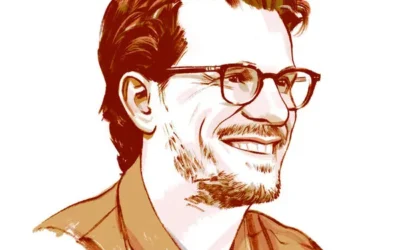
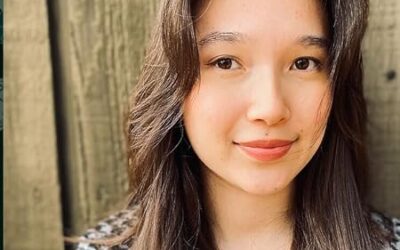
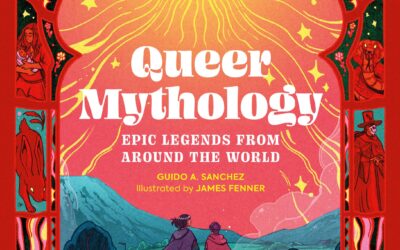
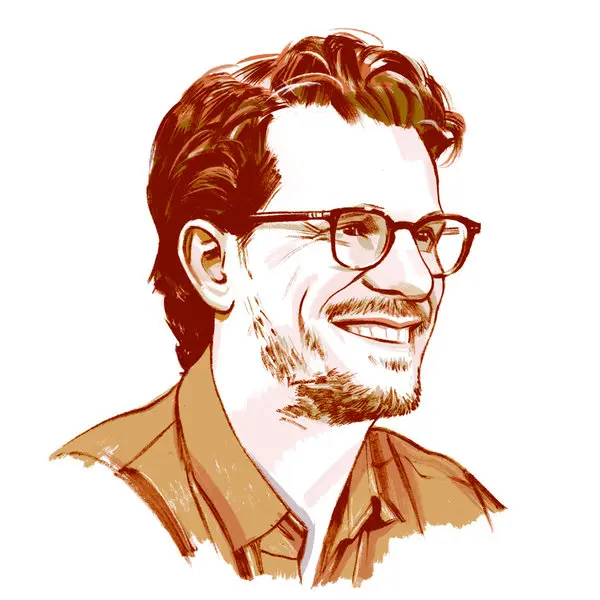
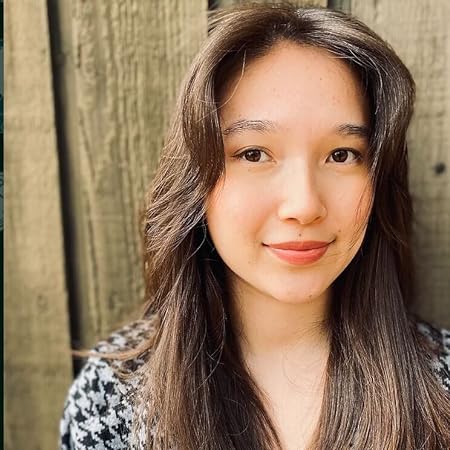
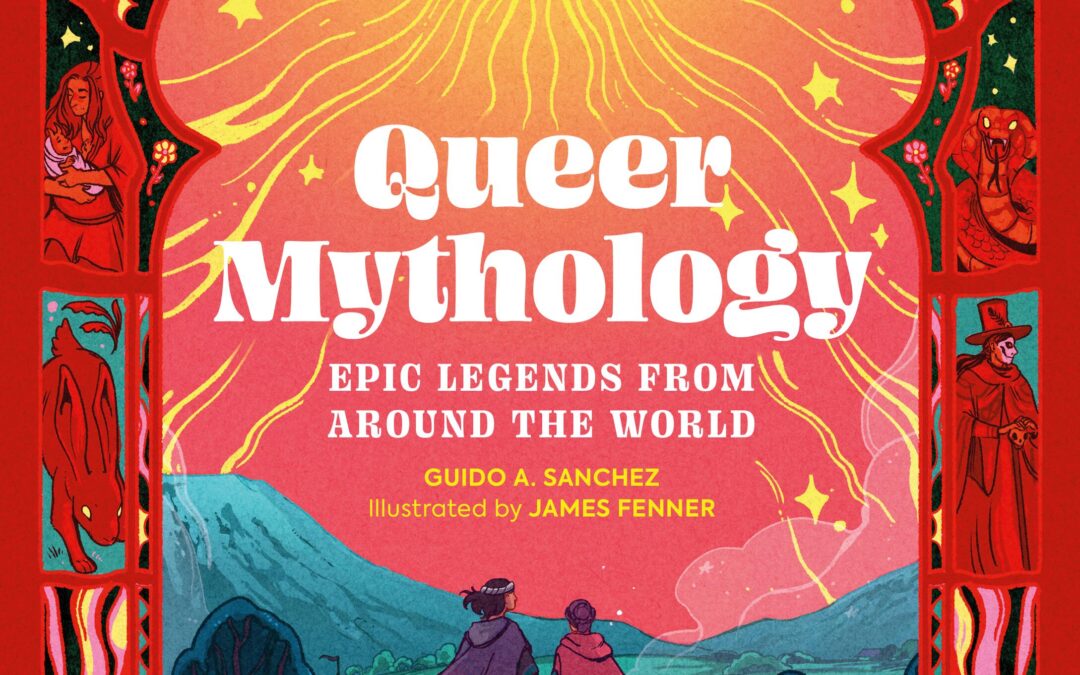
0 Comments